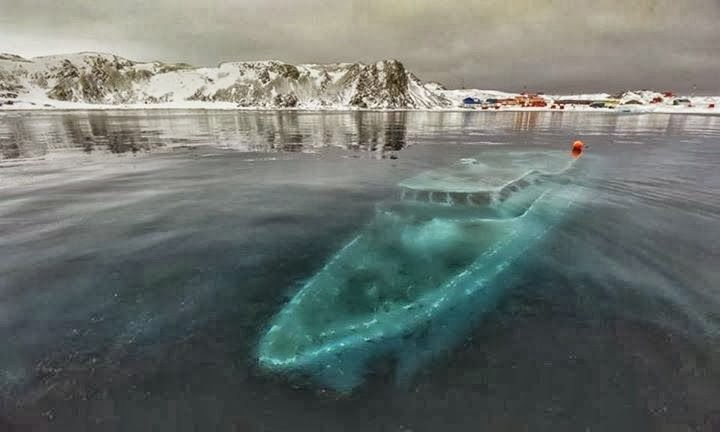Abandoned dome houses in Southwest Florida, USA
Abandoned mill from 1866 in Sorrento, Italy
Angkor Wat in Cambodia
Angkor Wat was first a Hindu, then subsequently, a Buddhist temple complex in Cambodia and the largest religious monument in the world. The temple was built by the Khmer King Suryavarman II in the early 12th century in Yasodharapura, the capital of the Khmer Empire, as his state temple and eventual mausoleum. Breaking from the Shaivism tradition of previous kings, Angkor Wat was instead dedicated to Vishnu. As the best-preserved temple at the site, it is the only one to have remained a significant religious center since its foundation. The temple is at the top of the high classical style of Khmer architecture. It has become a symbol of Cambodia, appearing on its national flag, and it is the country's prime attraction for visitors.
Christ of the Abyss at San Fruttuoso, Italy
Christ of the Abyss is a submerged bronze statue of Jesus Christ, the original of which is located in the Mediterranean Sea off San Fruttuoso between Camogli and Portofino on the Italian Riviera. It was placed in the water on 22 August 1954 at approximately 17 metres depth, and stands c. 2.5 metres tall. Various other casts of the statue are located in other places worldwide, both underwater and in churches and museums.
Craco, Italy
El Hotel del Salto in Colombia
Gulliver's Kingdom, Japan
Hafodunos Hall in Llangernyw, North Wales
Hashima Island, Japan
Holland Island in the Chesapeake Bay, Maryland, USA
I.M. Cooling Tower, Belgium
North Brother Island near New York City
North Brother Island is a small island in the East River situated between the Bronx and Riker's Island, New York City. Once the site of a hospital, it is now uninhabited and designated as a bird sanctuary. It measures approximately 400 m by 250 m. Its smaller companion, South Brother Island, is a short distance away. Together, the two Brother Islands, North and South, have a land area of 20.12 acres (81,400 m2).














